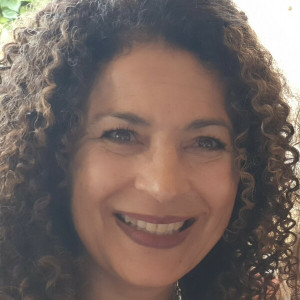All students work on their writing skills and English grammar at some point in their lives. Whether they are male, female, old or young… anyone can learn to write better than they do now.
Yet, most often, there are two main categories of writing students: those willing to improve their skills for work (like using writing skills to advance their career) and those who'd like to boost their literacy skills for use in their daily lives.
You may be an author struggling to have your book published, or you may be a marketing manager looking for ideas for your advertising materials. No matter the reason why you want to be a better writer, writings course will help you add new words to your vocabulary and learn some rewarding skills.

What Can Writing Lessons Teach You?
Everything depends on what level of written English and grammar you currently have since a writing course will be adapted to your particular needs. Have a look at our complete guide on how to improve English writing.
If you are planning to build a career in writing, you can enrol in a course on how to put your existing English language skills into practice. You'd receive guidance on fine-tuning your tone, learn about new ways to describe your characters, discover a few tips on how to create a plot, and much, much more.
For writers, for instance, especially if they don't devote their full time to writing, writing lessons can be useful to better understand current trends and the audience's tastes. They are free to write about their own life or to make up a completely new story with fictional characters. Whatever their choice, writing lessons can teach them to create a connection with their readers. And you can find out more about the benefits of writing every day on our blog.
If you are a complete beginner, a writing course can help you become familiar with the basics of the English language and grammar. You will get rid of common spelling mistakes in little time, learn to structure better sentences and expand your vocabulary to describe objects and events with more accurate words.
Whatever your ability, you can progress as a writer with the help of a writing course. Some of the valuable lessons you can take away include: enhancing your general literacy, improving your creativity and developing a more personal writing style.
Having new and fresh ideas isn't enough for writing. The way you write is essential too. That is why lots of people take courses to develop their imagination and make their writing more lively and entertaining. Students draw lots of benefits from writing courses and get encouraged to work on their creative side when they have free time.
Right Place to Start Learning to Write
Even if English is your mother tongue, it is still complicated. This is due to the fact that children learn languages unconsciously. They pick up new words and terms over the years but they don't often ask themselves questions about the way in which they use them. Many people think that they can write just like they speak. However, writing is very different from speaking.
Writing words on paper should make you think not only about what you are saying but also about how you are saying it. So, when we write, we have to think about our use of language.

When we are beginners starting to write our first sentences, it can be useful to take a few courses to review the basics. That can be an opportunity to remember that sentences start with a capital letter and end with a period, for example. Another important thing to know before you write is that to make sentences, you need a subject, verb and complement. Furthermore, sentences that start with the words ‘But’ or ‘And' are only possible in informal texts.
If you are willing to improve your spelling skills and get better at writing, you can find helpful ideas in this blog.
Do you think students in New Zealand have difficulties with spelling? Recent studies have shown that people make more and more spelling mistakes.
Another essential piece of knowledge for beginners is that proper nouns, such as names of people, must start with an upper-case letter. The same stands for the pronoun ‘I’. When ‘I’ is part of a group of people, it always comes last in sentences. For example, ‘Mike, John and I went to the bakery to buy some bread’.
If you work on your writing skills with a teacher, you will begin with simple exercises and gradually move to more difficult tasks as your confidence grow. At first, you are likely to write short sentences like: ‘I have a friend called Peter’, and then you'll tackle more complicated sentence structures.
For instance, a sentence with commas, semi-colons and colons can be very confusing so you should better wait until you are at ease with the basics.
One of the elements writers need to form a proper sentence is the basic parts of speech. You need to identify them and place them in sentences in the right order. Good writers must be able to tell nouns from verbs, and adjectives from adverbs before they can work on written texts. The Essential Resources website designed for English language students brings together information about different learning resources including books on spelling and writing.
Prompts and role-play are excellent activities for beginners. An English tutor in Auckland might give out prompts to their students so they can get used to simple sentence structures, like ‘My name is…’ or ‘I live in…’. Learners in other cities can find local options such as an English course Christchurch.
Role-play exercises consist in imagining different situations, like shopping. English tutors can push students to have basic exchanges and they will become more confident in the foundations of English.

Once a learner has mastered the most basic rules and they can move to the next stage in learning: they can add some more tools to their toolbox. For example, they can make sentences with multiple adjectives and several verbs while covering a wider range of subject matters. Another excellent exercise is to change the perspective from which they are writing the text.
To become a good writer, you need to be confident.
Writers who know they can build a well-structured series of sentences without mistakes are more likely to unleash their imagination and write spontaneously.
Yet new ideas and a creative imagination aren't the only elements of writing. For instance, journalism and marketing require completely a totally different mindsets and skills than poetry. Is it possible to write a perfect essay? Writers who know how to present facts and can do so in a very correct manner may be just as gifted as novelists who can deliver 1000 pages of exciting storytelling.
On Superprof, you can find hundreds of qualified English tutors ready to help.
How To Teach Yourself Written English
There is a great choice of online courses build to work on different aspects of writing. Using free resources can be an excellent idea. Since writing is very subjective, having a diploma or another qualification doesn't necessarily tell what kind of writer you are.
Similarly, it is very difficult to put together an exam that will test someone's writing skills. We all have our own opinions and writing styles. So, even if the student meets a particular set of criteria in an exam, they could just as easily get into difficulty writing a book by simply lacking inspiration or being less disciplined than others. If you need help with assessment standards you could look for tutors offering NCEA English.
You can find the right online writing course, as training programmes can vary in length from a few days to a dozen weeks. You can also try to use websites offering text optimisation tools. Actually, there are quite a few AI-based websites and apps that are meant to help writers turn basic sentences into slogans or enhance texts to make them flow better.
With the help of such online products, you can learn how to improve your own writing step by step though it will be up to you to identify your mistakes and understand why. Artificial Intelligence will not explain them to you as an English tutor would do in class.
Another downside is that it is difficult to know which site is genuine and which isn't since the quality of its content can't be evaluated objectively. As we have already said, language is subjective.
Find out how the English language has developed from its Germanic roots throughout history!

Read More to Write Better
Writing and reading are two connected activities: for instance, people write to be read by someone later on. It also works in the opposite way. Students who read a lot of books can write well most of the time while those who don't read even one book a year are less likely to develop solid writing skills.
Spending time reading can play to your advantage as you will expand your vocabulary, learn new concepts and discover new ways to talk about feelings and emotions. The latter is especially important for those willing to write novels or short stories as they can learn how to get their readers engaged with their stories.
School students learn first to read and then to write. It doesn't mean that reading is easier than writing, but because it's through reading that we can learn the other. With the two being closely connected, any writer should spend enough time reading books.
On Superprof, there are lots of tutors who can teach you reading and writing skills all across the country. You can also find an English course Wellington.
Summarise with AI:















